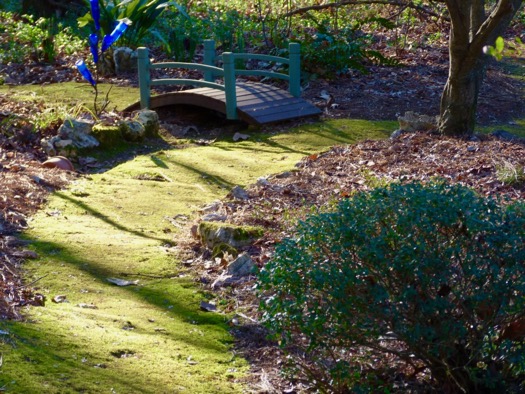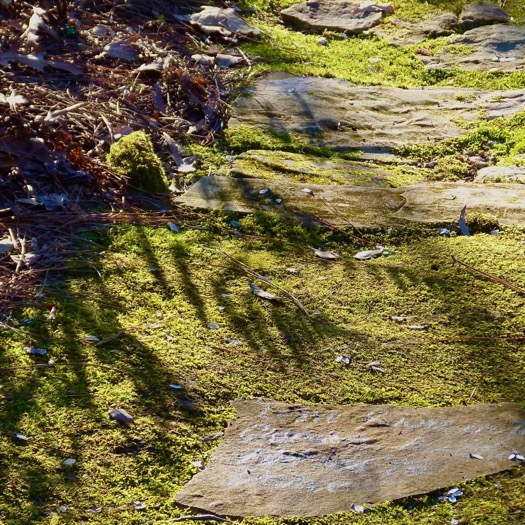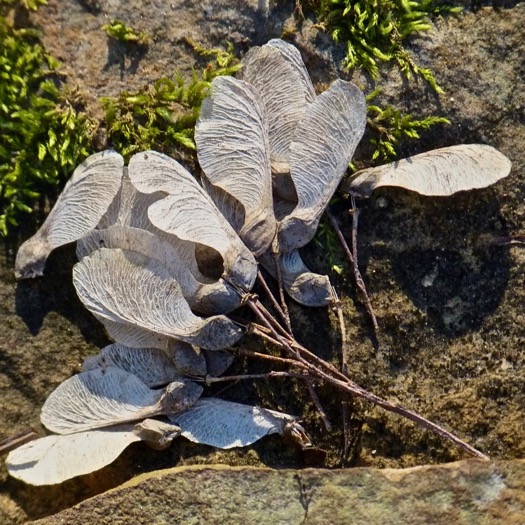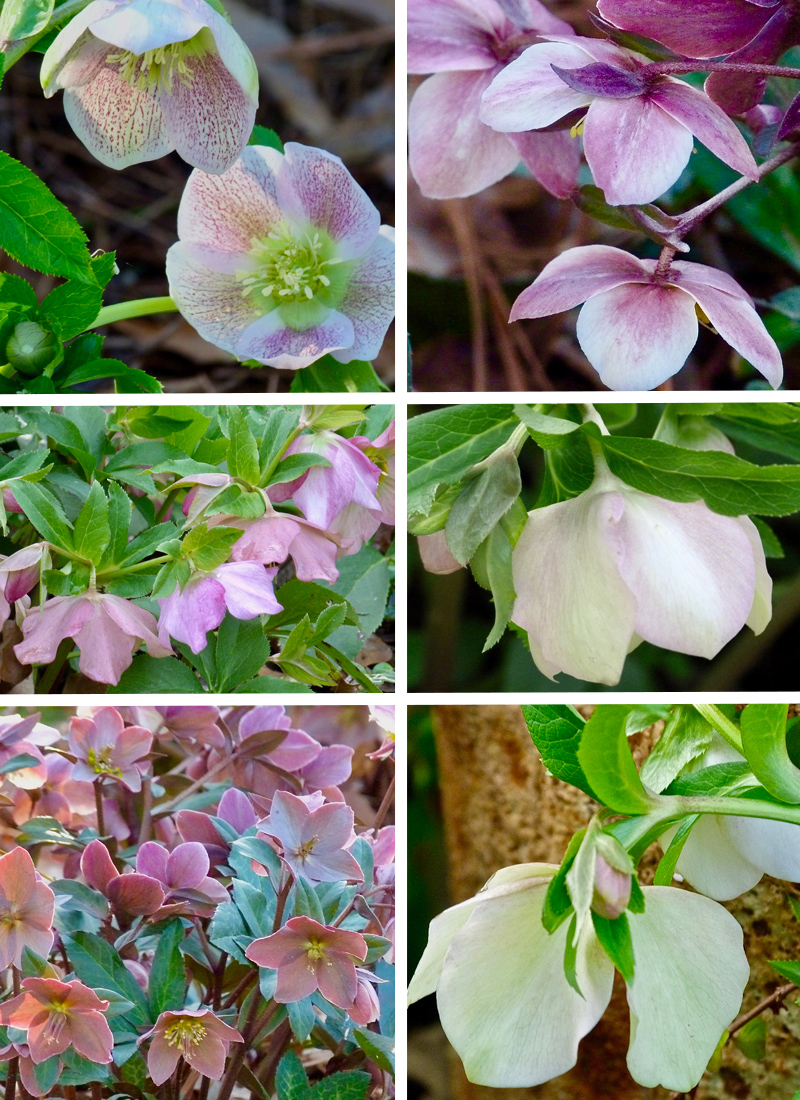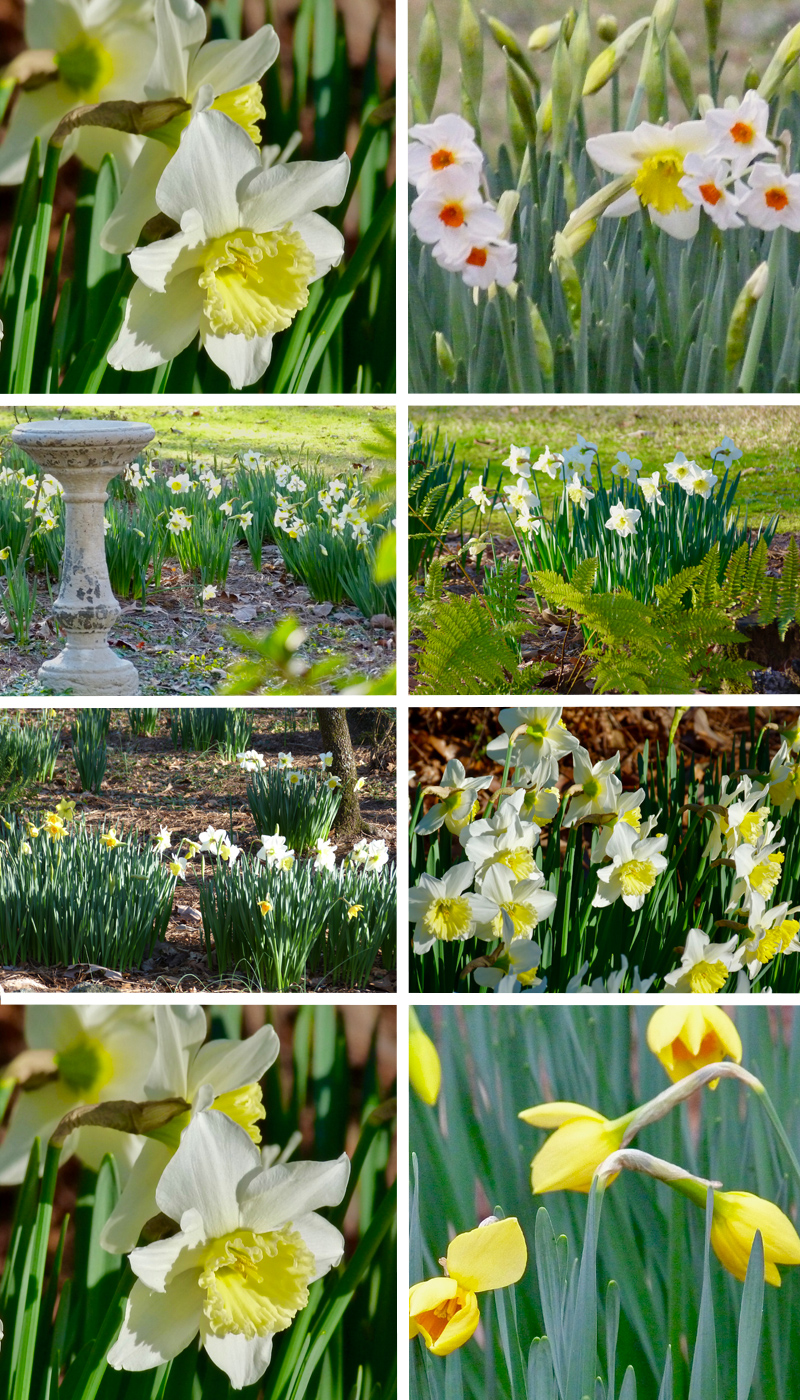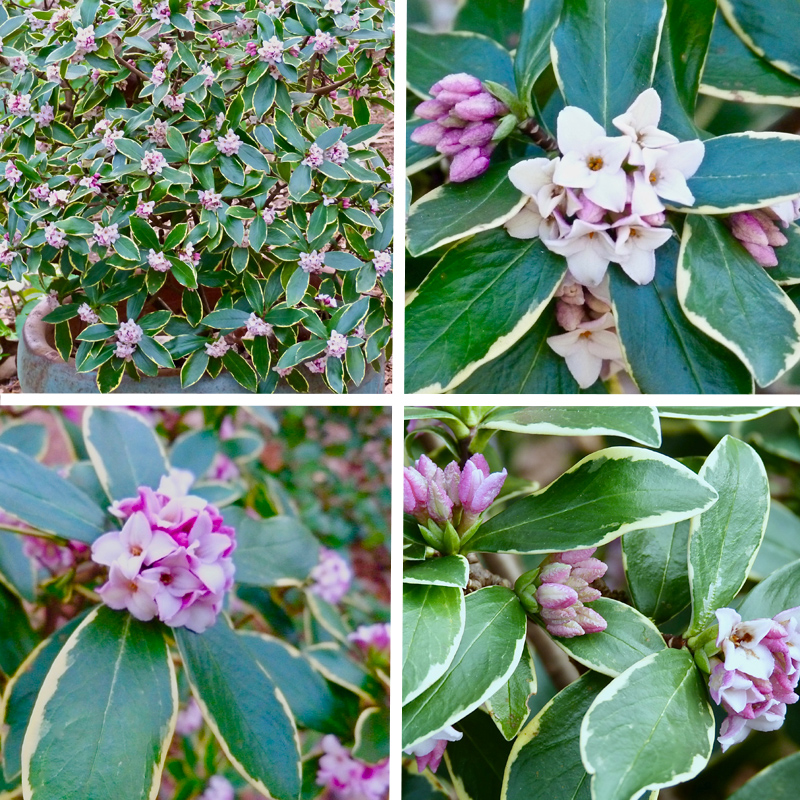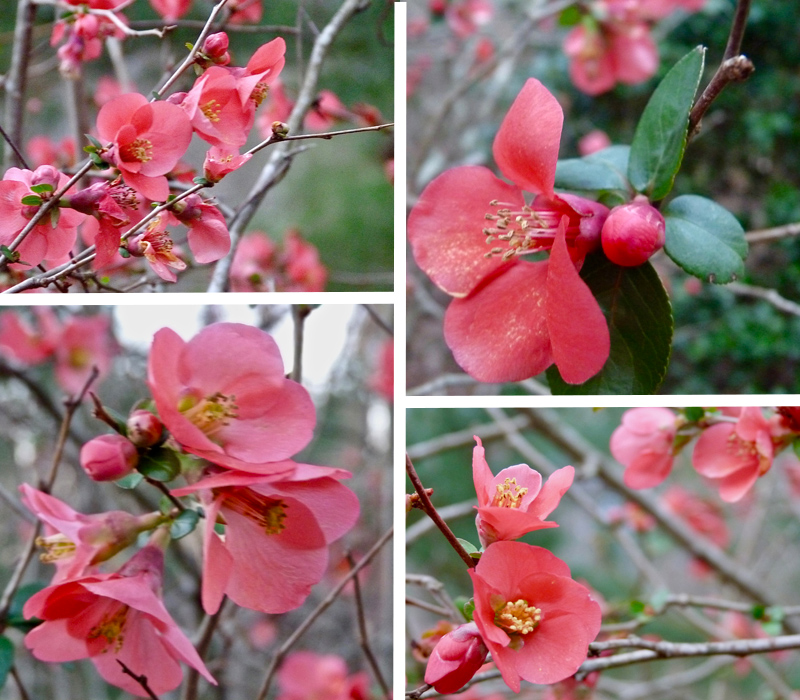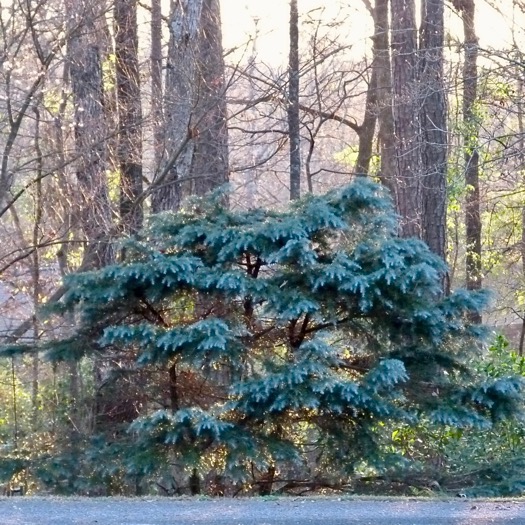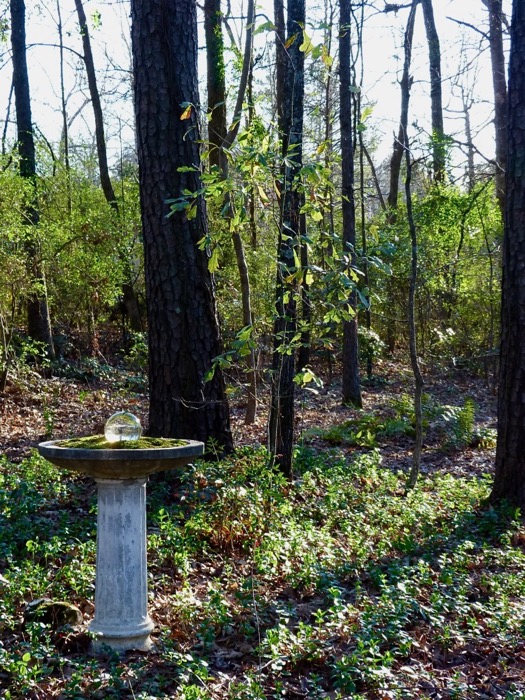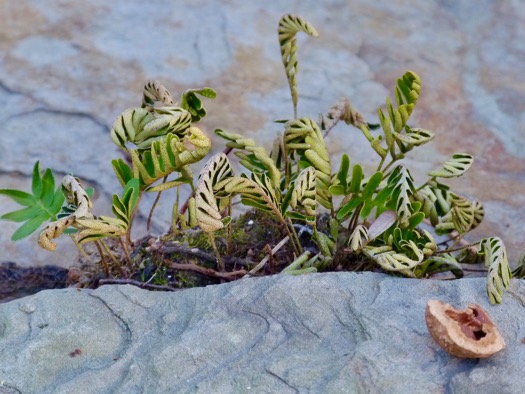2020 Spring Garden Review
 Monday, April 13, 2020 at 9:00PM
Monday, April 13, 2020 at 9:00PM It has been a strange spring, with the world set on pause, waiting for the coronavirus to run its course. I am fortunate that I am safely tucked into my garden with plenty of space to wander and putter, and I am grateful for technology that keeps me up to date and connected to my friends and to my three sons, two of whom are sheltering in far away corners of the planet.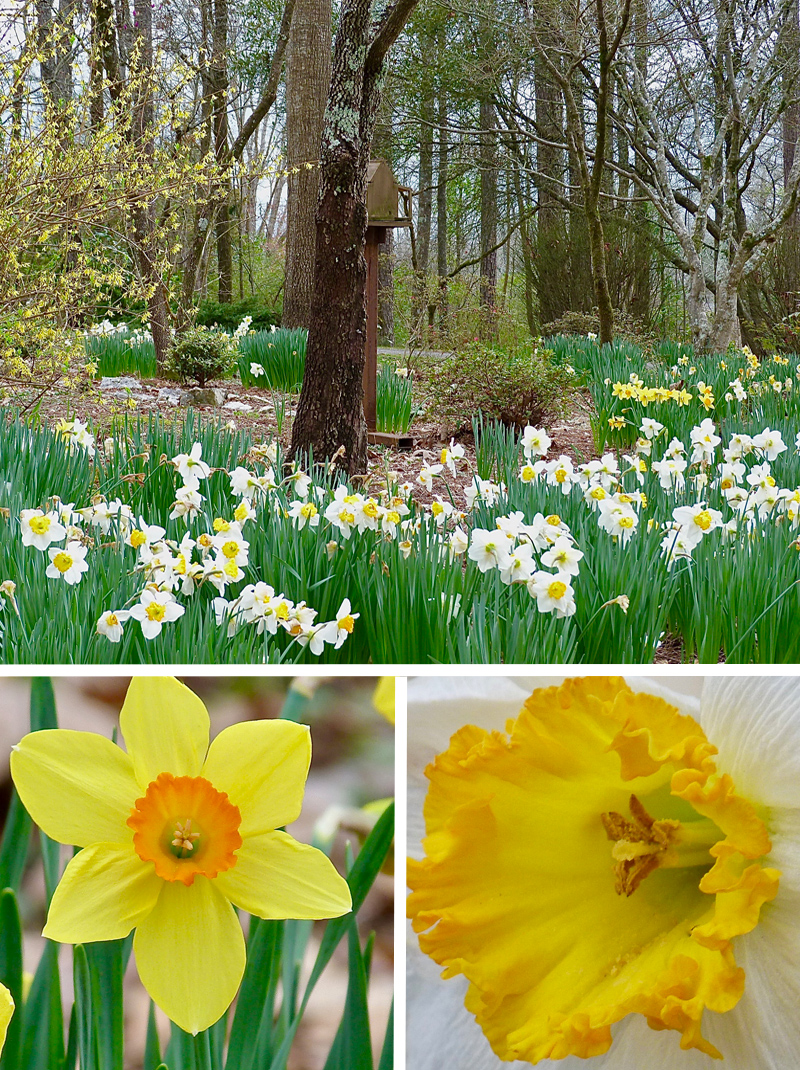 Daffodils have almost finished blooming in the garden now. But from February through March they were gorgeous.
Daffodils have almost finished blooming in the garden now. But from February through March they were gorgeous.
My life style has slid into decadence. With no appointments to keep I can read late into the night and then sleep late into the morning. My husband has different biorhythms and has the inhuman habit of rising at 4:30 am. After a few hours he checks on me to make sure I am still breathing. If he see signs of wakefulness, he will bring me a cup of coffee to ease the transition.
Nature is finished with sleeping. After an exceptionally wet winter, spring has burst forth with glorious activity.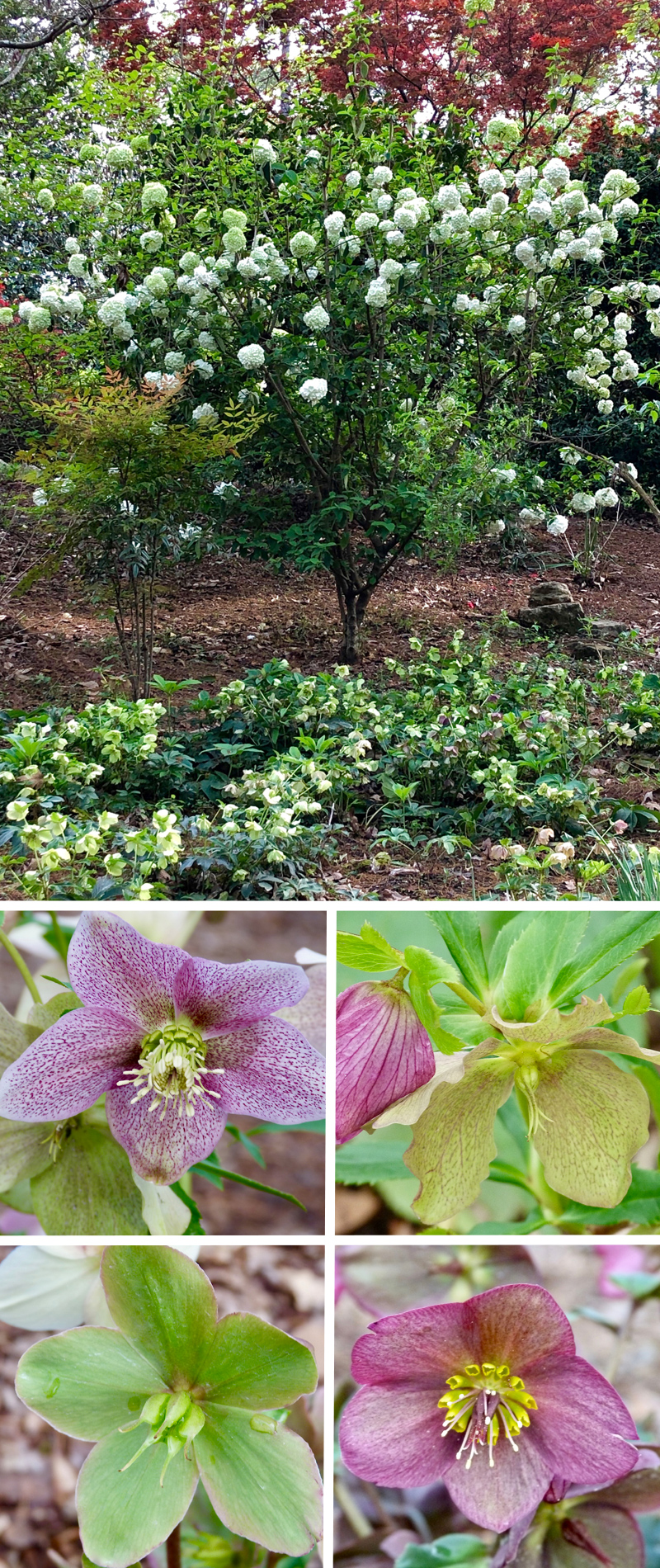 Swaths of hellebores are continuing to bloom under the Snowball Viburnum, as well as in several other places. Like the daffodils, they have been blooming for months. They started in shades of pink, green, and white and have all slowly faded to white. The flowers will begin to drop by May, but the foliage will continue through the year..In the garden there are riots of color and symphonies of bird song. Everything is fresh, healthy, and exuberant with life. One of the first things I do every day is to open the door and breathe in the crisp air, taking in the aromas of the damp earth, young vegetation and sweet blooms on the breeze.
Swaths of hellebores are continuing to bloom under the Snowball Viburnum, as well as in several other places. Like the daffodils, they have been blooming for months. They started in shades of pink, green, and white and have all slowly faded to white. The flowers will begin to drop by May, but the foliage will continue through the year..In the garden there are riots of color and symphonies of bird song. Everything is fresh, healthy, and exuberant with life. One of the first things I do every day is to open the door and breathe in the crisp air, taking in the aromas of the damp earth, young vegetation and sweet blooms on the breeze.
Tree form Encore Azalea 'Autumn Embers' grows in the arbor garden. It will produce brilliant blooms even more abundantly in autumn: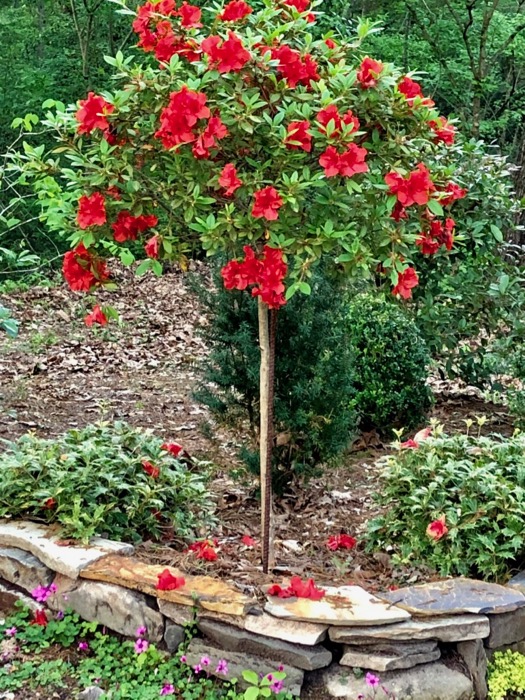
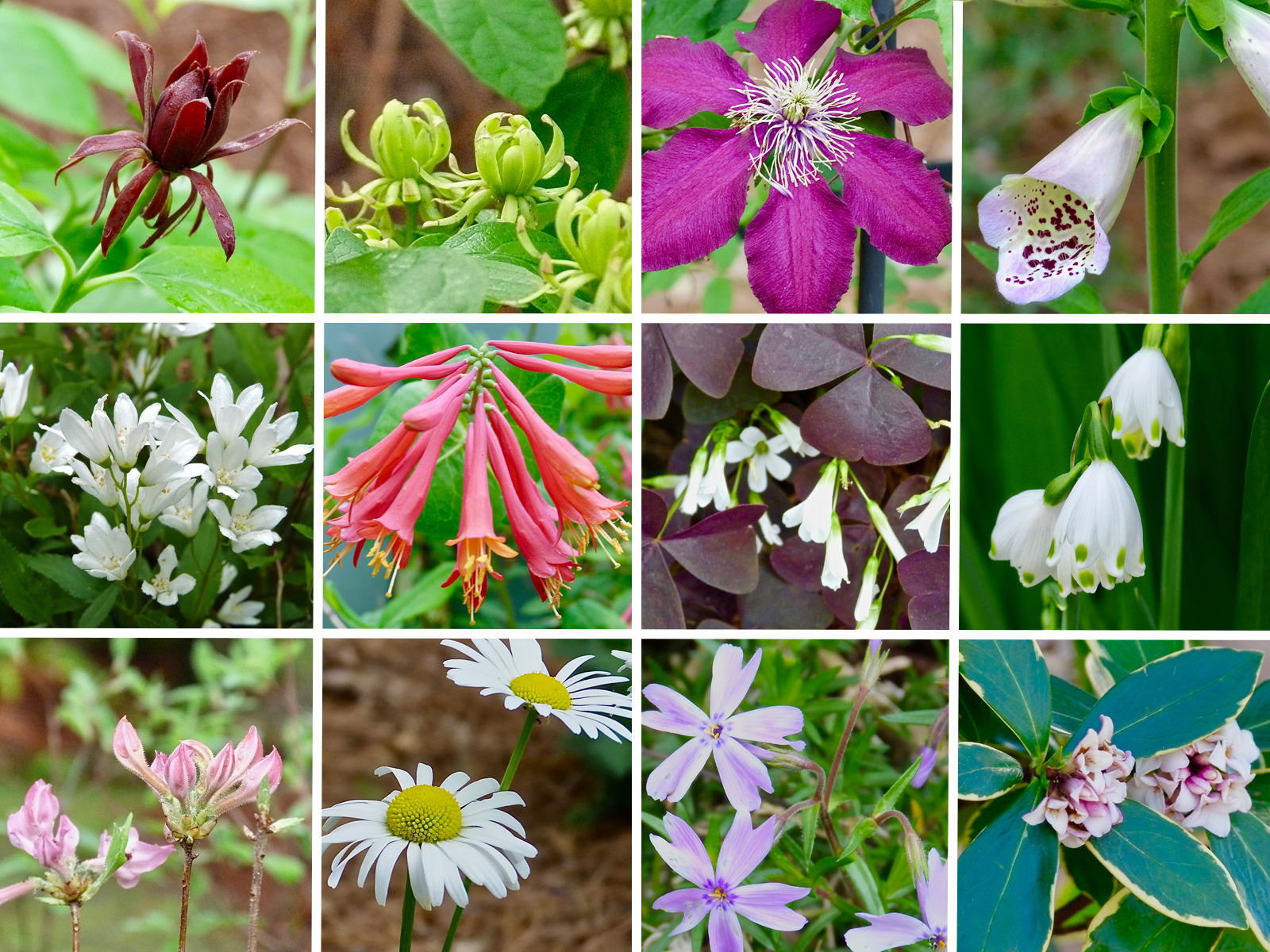 1st row: Calycanthus floridus is a native commonly called sweet shrub or strawberry bush in reference to its fragrant blooms; Calycanthus floridus 'Athens' is a cultivar with greenish blooms that smell strongly of ripe bananas; Clematis 'Niobe'; Foxglove 'Camelot Lavender'. 2nd row: Deutzia gracilis 'Nikko' (dwarf slender deutzia); Lonicera sempervirens (coral honeysuckle) is native to the eastern United States; Purple Shamrock; Leucojum aestivum, although called 'Summer Snowflake', flowers mid spring. 3rd row: Native azaleas are beginning to open their buds. These deciduous shrubs traditionally were called honeysuckle because of their sweet fragrance; Shasta Daisy; Phlox subulata is a creeping form of phlox; Variegated Winter Daphne.
1st row: Calycanthus floridus is a native commonly called sweet shrub or strawberry bush in reference to its fragrant blooms; Calycanthus floridus 'Athens' is a cultivar with greenish blooms that smell strongly of ripe bananas; Clematis 'Niobe'; Foxglove 'Camelot Lavender'. 2nd row: Deutzia gracilis 'Nikko' (dwarf slender deutzia); Lonicera sempervirens (coral honeysuckle) is native to the eastern United States; Purple Shamrock; Leucojum aestivum, although called 'Summer Snowflake', flowers mid spring. 3rd row: Native azaleas are beginning to open their buds. These deciduous shrubs traditionally were called honeysuckle because of their sweet fragrance; Shasta Daisy; Phlox subulata is a creeping form of phlox; Variegated Winter Daphne.
Clematis 'H.F. Young' :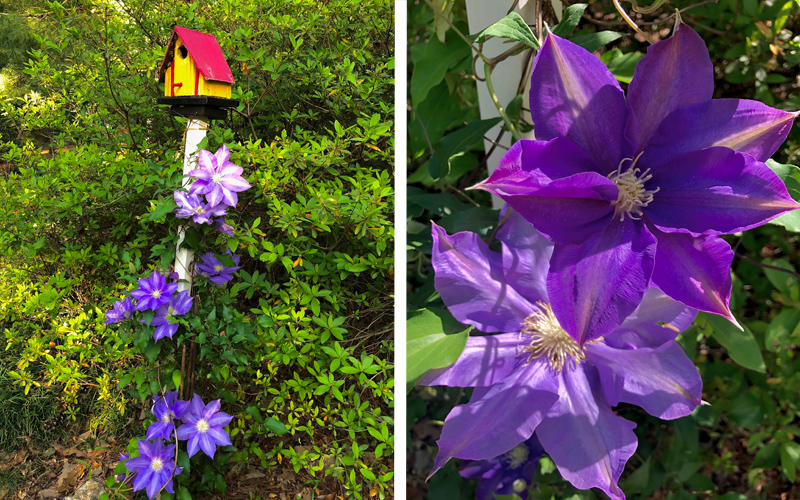
This is a view of the front walk, with silvery dusty miller growing around the trunk of a crape myrtle tree. A pink hanging bougainvillea and ajuga bloom by the birdbath. The path leads past the front door and continues around the house to the patio: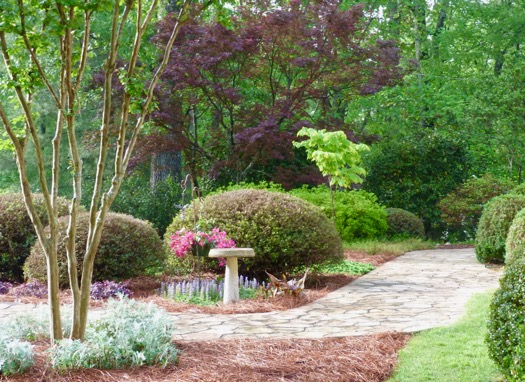
Here are two spring photos taken from the patio:
This view looks toward a weeping green laceleaf Japanese maple. Those white flowers on the right are called fleabane, a wildflower (weed) that I allow to grow in a few places. The strappy foliage belongs to day-lilies that will bloom later: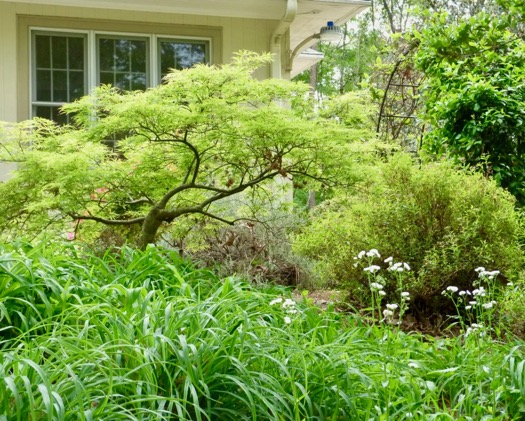
The gorgeous Japanese maple in the following shot across the front lawn is our "marriage tree." It will soon be forty-five years old!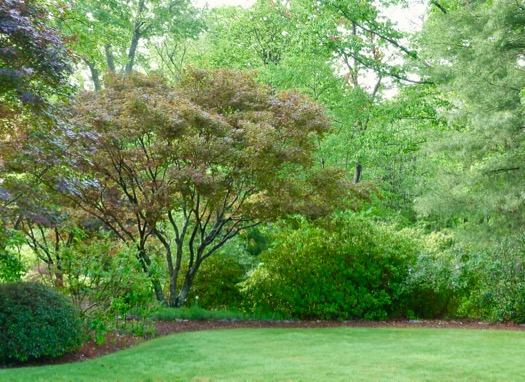
This is a spring view inside the front garden: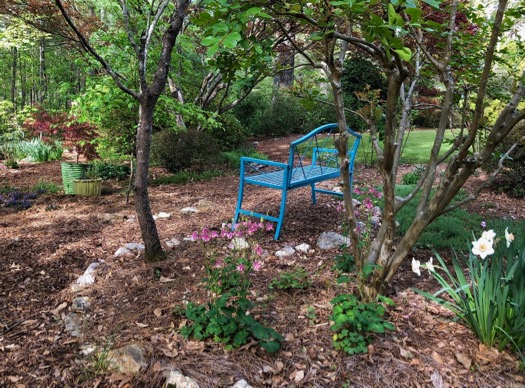
As beautiful as all the flowers are, I am first devoted to interesting and colorful foliage. Here are a few examples: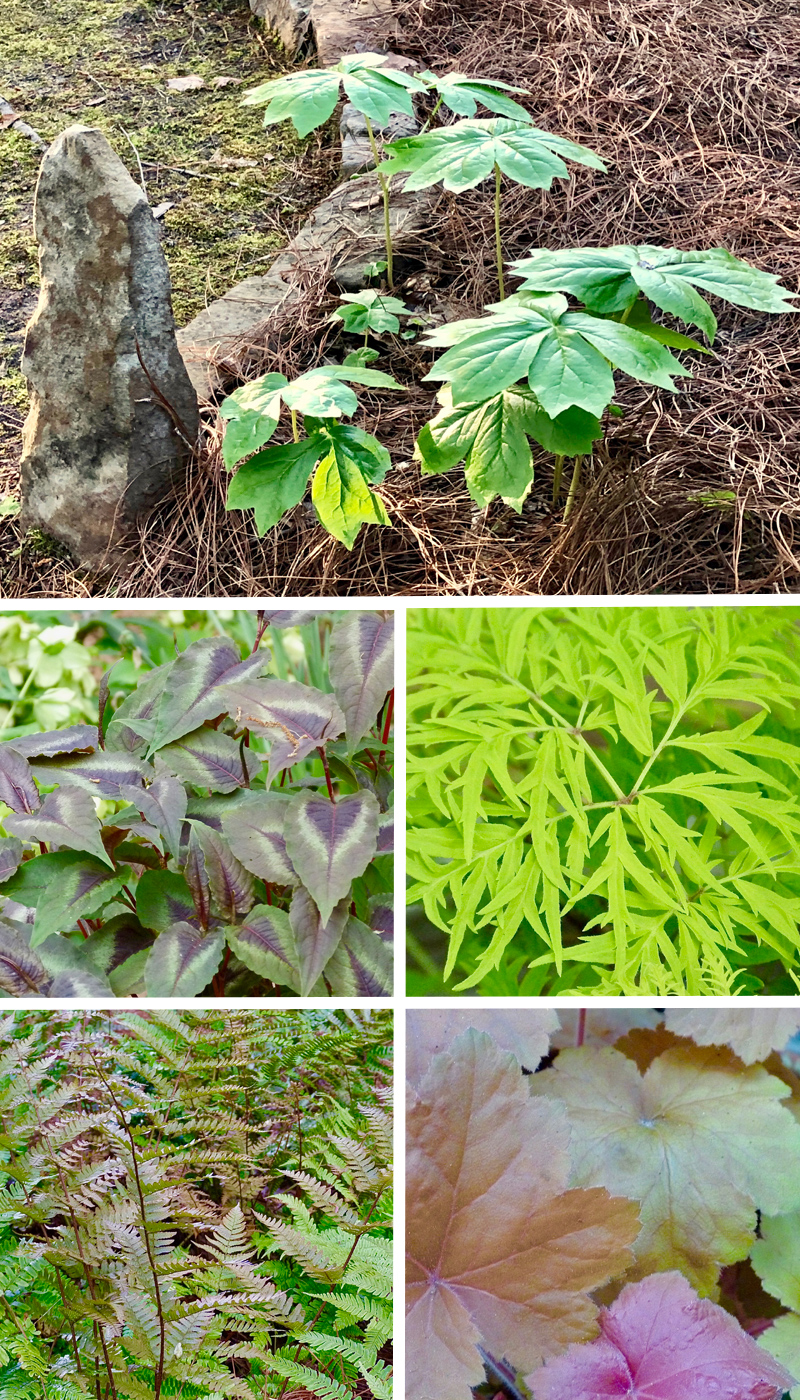 Large photo: Mayapple (Podophyllum peltatum) is a native woodland plant that is widespread across most of eastern North America. Smaller photos, clockwise from upper left: Persicaria microcephala 'Red Dragon'; Sambucus racemosa 'Lemony Lace'; Heuchera x 'Caramel'; Dryopteris erythrosora, the autumn fern.This is of one of my favorite parts of the woodland garden. I moved the concrete bench to its new location to take advantage of the view:
Large photo: Mayapple (Podophyllum peltatum) is a native woodland plant that is widespread across most of eastern North America. Smaller photos, clockwise from upper left: Persicaria microcephala 'Red Dragon'; Sambucus racemosa 'Lemony Lace'; Heuchera x 'Caramel'; Dryopteris erythrosora, the autumn fern.This is of one of my favorite parts of the woodland garden. I moved the concrete bench to its new location to take advantage of the view: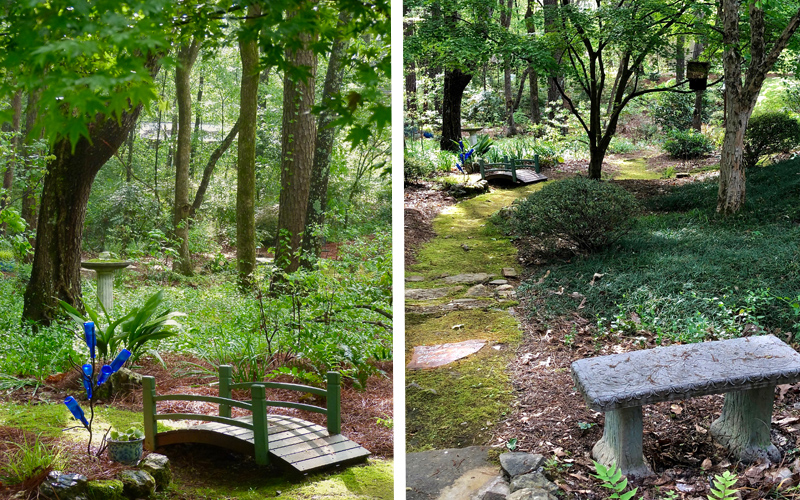
I hope that you are well and staying strong through the tough times. It is easy to worry about coronavirus and to focus on uncertainties. But I am reminded of these words, taken from the fourth chapter of the Bible's book of Philippians: Finally, whatever is true, whatever is noble, whatever is right, whatever is pure, whatever is lovely, whatever is admirable—if anything is excellent or praiseworthy—think about such things.
May the God of Peace be with you! Deb
